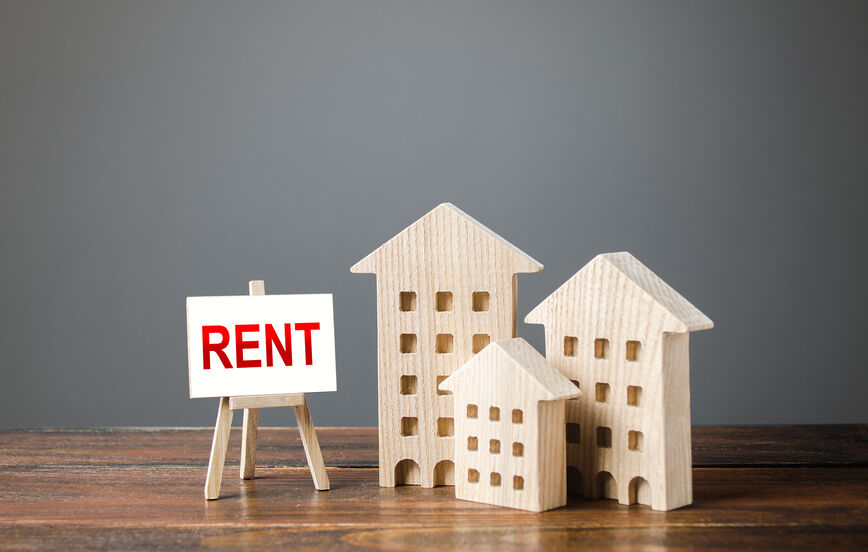Residential investment properties can be a good source of income. In fact, they can even be a passive form of income if you hire a property manager to do the work for you. While they can be a great investment, there are also a number of fees that any property owner should be aware of before going into this.
What Fees Will You Be Charged During the Purchase of an Investment Property?
If you’ve bought a property before, then you’re probably already familiar with the fees that go into doing so. However, it’s important to know that buying a rental property will be a little different than buying a home for you to live in. For example, typically the down payment is going to be more expensive. This payment may range from 15% to 30%, but it will probably be closer to the 20-25% range. Your mortgage rate will probably be a little higher too (possibly 0.75-1% more). Like any property, you’ll also have closing costs to cover (expect to pay 2%-5% of the loan). These fees include a number of things such as the title search, the inspection, the credit report, attorney fees, the transfer, and more.
What Fees Should You Account for Ongoing?
Now that we’ve looked at the basic fees that you’ll face upfront during the purchase, let’s take a look at the fees you should account for ongoing. Of course, you’ll have your mortgage to pay, but there will also be added expenses. Make sure to keep these in mind when coming up with an operating budget and determining your reserve funds.
- Tenant Turnover Expenses. Attracting new tenants will cost money. You’ll need to market your property, pay to screen tenants, and do thorough property cleanings in between. Depending on the size of your property and tenant retention rates, these expenses could vary significantly. Remember to require a security deposit for any damage that is beyond typical wear and tear.
- Property Maintenance Costs. You’ll need to put money aside to handle preventative and emergency maintenance needs. While your tenant’s rent may cover the typical expenses, it’s extremely important to have a good reserve available in case you face a larger expense or a tenant would move out. You don’t want to have to rely on the rent to cover the maintenance needs.
- Landscaping Costs. Depending on the type of property you purchase, you may or may not have landscaping fees to keep in mind. If this is something that falls on your list of responsibilities, remember to account for whatever the cost would be to maintain the landscaping.
- Fees for Pest Control. No matter where your property is located, you will probably need to take care of some sort of pest. For example in some areas you have to spray for cockroaches. In other areas, there might be yellow jackets or ants. It’s important to have money set aside for any pest control fees that you may encounter.
- Utility Costs. If you’re responsible for any of the utility costs, remember to factor this into how much you’ll need to spend annually on the property.
- Property Taxes. Along with the mortgage, you’ll have ongoing property taxes that you’ll need to pay on the rental investment. This amount will depend on where the property is located and the property value.
- Landlord Insurance Fees. You’ll need to account for landlord insurance. The average cost in the United States is $1,288 a year.
- Hired Expert Fees. Hiring an attorney, accountant, property manager, or another expert to help you out will be an added expense. However, some of these experts can end up being a cost-effective decision that saves you money (such as property management).
While you can see that there are many ongoing expenses to keep in mind, some of these are actually tax deductibles such as business expenses, mortgage interest, property taxes, attorney fees, accounting fees, property management fees, and landlord insurance. The depreciation of your property can also be tax deductible. Just make sure to talk with a tax expert so that you know exactly what you can and can’t write-off to save you money and keep you legally compliant.
Residential rental properties have a lot of expenses tied to them from purchasing to the ongoing management of the property. However, it can still be a lucrative investment, you just need to figure out your Return On Investment (ROI) and ensure you have enough money set aside. It’s important to know what you could reasonably make in rent annually as well as what expenses you’ll face ongoing and upfront. This can help you determine if it’s a sound investment. As Rocket Mortgage puts it, “[ROI is] how much money you made divided by how much money you spent.”
If you’d like help managing your property, please reach out to us at PMI. We’re experts in tenant retention, property maintenance, marketing, and much more!



